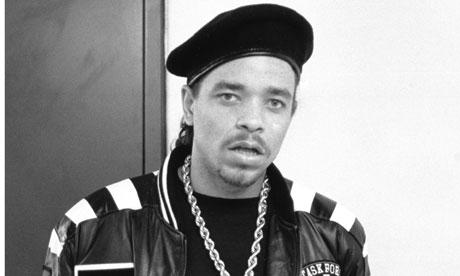Having to continue the daunting mission of claiming supremacy in the South Bronx shortly after the untimely death of BDP co-founder and friend Scott La Rock, Kris Parker, better known as The Blastmaster KRS-ONE, delivered an album that walked a thin line between so-called consciousness and hardcore. With intellectual lyrics and thought provoking commentary, the lead single “My Philosophy” confirmed KRS’s claim that he was indeed “The Teacher.”
Track Listing:
- My Philosophy
- Ya Slippin’
- Stop the Violence
- Illegal Business
- Nervous
- I’m Still #1
- Part Time Suckers
- Jimmy
- T’Cha-T’Cha
- Necessary
But don’t take KRS’s higher level of thinking as a sign of weakness by any means. As typical in any true emcee fashion, KRS never missed the chance to confront rival lyricists. This was tremendously evident on the in your face track, “I’m Still #1.” By bringing out the truth in a song, it became a deep sentiment that he openly stated whenever he was asked about his governing position in the Hip Hop world.
Taking on the controversial subject of AIDS, violence and the devastation of the drug game in the ghetto, as displayed on “Illegal Business,” KRS held no punches when it came to how he felt about the atrocities that affected his people. By professing that “Knowledge Reigned Supreme Over Nearly Everyone,” KRS proved he took his role as an educator of Hip Hop extremely serious.
Nonetheless, the making of this album by KRS, was widely seen by most critics as one of, if not the first, politically conscious efforts in Hip Hop. Tracks like the reggae tinged “Stop The Violence,” boasted the unforgettable hook, “I, 2, 3, the crew is called BDP, and if you want to go to the tip-top, stop the violence in Hip Hop, why-oh!”
What also made this album stand out was the risky yet effective use of the edgy late 60’s rock group, Deep Purple’s “Smoke On The Water,” on the track “Ya Slippin.”The use of the hard guitar riff effectively changed the way many rap artists used obscure samples on records. This particular choice was a bold experiment musically, especially during a time where jazzy horns and grooving funk breaks were considered the norm in the production of rap music.
The track “Part Time Suckers,” mixed the voice of Smokey Robinson & The Miracles “Mickey’s Monkey,” “Alright here we go!” with an ingenious interpolation of Stevie Wonder’s “Part Time Lover.” The confidence that KRS displayed was evident when he audaciously stated, “BDP will teach them, ay, we will teach them!” He effortlessly broke down different words and their meanings, and called himself “The Teacher,” which easily solidified him as such.
KRS continued to show his uncanny versatility on the witty safe-sex track, “Jimmy.” Serving as a close cousin to the Jungle Brothers’ classic “Jimbrowski,” Kris made a case for practicing safe sex, while telling you to have fun enjoying the act. This particular cut offered a lighter yet funny side of KRS that was typically more battle rhyme driven.
On the energetic track “Nervous,” KRS took a break from lyrically challenging sucker emcees by giving a quick shout out to everybody that was down with BDP. The beauty of this record in part was due to the samples used on this track: the Rhythm Heritage’s recording “Sky’s The Limit,” and War’s excessively funky “Galaxy.” Also, this song distinctively took us back to the sounds originally introduced by Hip Hop co-founder Afrika Bambaataa and his group, The Soul Sonic Force, which instantly placed this track in the classic bin.
The drum heavy “T’ Cha T’ Cha,” revisited the original BDP sound that made KRS, D-Nice and Scott La Rock household names from the beginning. The last track “Necessary,” lent itself to the power of the spoken word while criticizing a system that overtly seemed to look down on inner city minorities. All in all, this album felt more personal than their debut album Criminal Minded and arguably a little more concise.
Interesting enough, KRS, who was originally a graffiti writer, evolved onto the rap scene after he befriended a counselor working at a homeless shelter following his release from jail. The counselor’s name was Scott Sterling, who would later be known as DJ Scott La Rock. The violent death of La Rock in a sense brought about the brilliance that embodied the bulk of this album which further pushed the movement by all means necessary.


